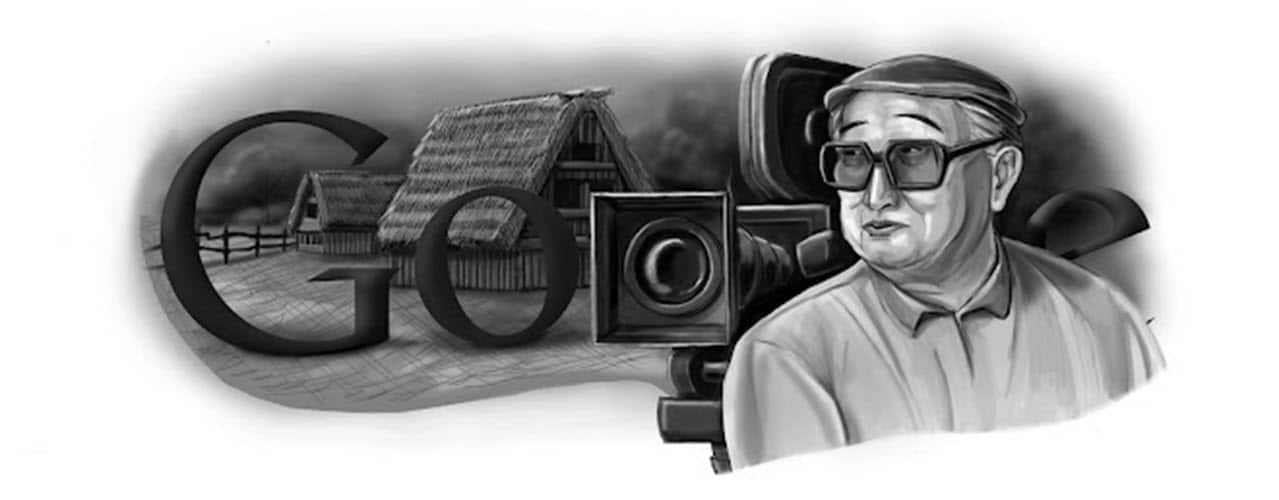Akira Kurosawa: Master of Japanese Cinema and Global Filmmaking

Image Courtesy: Google Doodle
Akira Kurosawa (23 March 1910 – 6 September 1998)) was a Japanese film director and screenwriter, widely regarded as one of the most influential filmmakers in the history of cinema. He was also a painter who directed thirty films in a career spanning over five decades. He is widely regarded as one of the most important and influential filmmakers in the history of cinema. Kurosawa displayed a bold, dynamic style, strongly influenced by Western cinema yet distinct from it; he was involved with all aspects of film production.
Life and Career
He was born on 23 March 1910, in Tokyo, Japan. Kurosawa grew up in a family of painters and studied art at Tokyo Imperial University before becoming interested in film. He started working in the Japanese film industry in the 1930s, first as an assistant director and later as a screenwriter.
Kurosawa’s breakthrough came in 1943 with his directorial debut, “Sanshiro Sugata,” a martial arts film that was both critically acclaimed and commercially successful. He went on to direct numerous classics of Japanese cinema, including “Rashomon” (1950), “Seven Samurai” (1954), “Yojimbo” (1961), and “Red Beard” (1965).
Kurosawa was known for his mastery of visual storytelling, particularly his use of composition, movement, and editing to create powerful and dynamic images on the screen. He was also a pioneer of the jidaigeki genre, which features historical and samurai-themed stories and influenced countless filmmakers around the world. In addition to his work in film, Kurosawa was also a prolific writer and painter, and his art was exhibited in galleries around the world.
Throughout his career, Kurosawa received numerous awards and honors, including the Academy Award for Best Foreign Language Film for “Dersu Uzala” in 1976 and an Honorary Oscar for lifetime achievement in 1990. He passed away on 6 September 1998, in Setagaya, Tokyo, Japan. Kurosawa’s legacy continues to inspire filmmakers and cinephiles around the world. His films are celebrated for their artistry, humanity, and enduring relevance, and his influence can be seen in the work of directors as diverse as George Lucas, Martin Scorsese, and Quentin Tarantino.
Award and Legacy
Akira Kurosawa’s contributions to the art of filmmaking have been widely recognized and celebrated both during his lifetime and in the years since his passing.
Some of the most notable awards and honors Kurosawa received during his career include:
- The Palme d’Or at the Cannes Film Festival for “Kagemusha” in 1980
- The Venice Film Festival Golden Lion for Lifetime Achievement in 1982
- The Japanese Order of Culture in 1985
- The BAFTA Award in 1987
Kurosawa’s legacy as a filmmaker is immense, and his influence can be seen in the work of countless directors and artists around the world. His films are renowned for their innovative visual style, compelling storytelling, and deep humanism, and they continue to be celebrated and studied by film enthusiasts and scholars alike.
Beyond his contributions to cinema, Kurosawa is also remembered as a cultural ambassador for Japan, and his work helped to introduce Japanese culture to audiences around the world. His influence on Japanese culture and identity is still felt today, and he remains one of the most iconic and beloved figures in Japanese history.
On 23 March 2010, Google celebrated Akira Kurosawa’s Birthday with a doodle.
Observer Voice is the one stop site for National, International news, Sports, Editor’s Choice, Art/culture contents, Quotes and much more. We also cover historical contents. Historical contents includes World History, Indian History, and what happened today. The website also covers Entertainment across the India and World.

